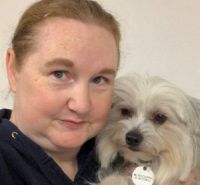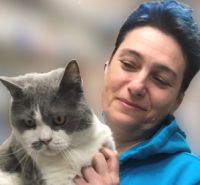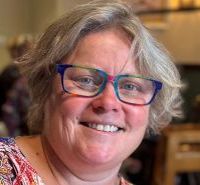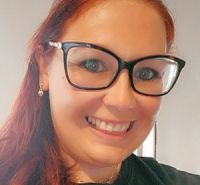-
-
- Standards Committee
- Advancement of the Professions Committee
- Audit and Risk Committee
- Education Committee
- Disciplinary Committee
- Charter Case Committee
- Preliminary Investigation Committee and Disciplinary Committee Liaison Committee
- Registration Committee
- Preliminary Investigation Committee
- Paper classification: some definitions
-
-
-
-
- About extra-mural studies (EMS)
- EMS requirements
- Information for vet students
- Information for EMS providers
- Information for vet schools
- Temporary EMS requirements
- Practice by students - regulations
- Health and safety on EMS placements
- EMS contacts and further guidance
- Extra-mural studies fit for the future
-
-
- Code of Professional Conduct for Veterinary Surgeons
- Code of Professional Conduct for Veterinary Nurses
- Contact the Advice Team
- XL Bully dog ban
- 'Under care' - guidance
- Advice on Schedule 3
- Controlled Drugs Guidance – A to Z
- Dealing with Difficult Situations webinar recordings
- FAQs – Common medicines pitfalls
- FAQs – Routine veterinary practice and clinical veterinary research
- FAQs – Advertising of practice names
- GDPR – RCVS information and Q&As
-
- Accrediting veterinary degrees
- Accrediting veterinary nursing qualifications
- Reasonable adjustments for student vets
- Health and disability in veterinary medicine study and practice
- The role of the veterinary schools and the RCVS
- Reasonable adjustments and the Equality Act 2010
- Reasonable adjustments and Day One Competences
- Examples of reasonable adjustments for vet students
- Annex
- Reasonable adjustments for student vets - summary
- Reasonable adjustments for student veterinary nurses
- Health and disability in veterinary nurse education and training
- Reasonable adjustments for students and the UK disability discrimination legislation
- Educational assessment of veterinary nurses
- Roles of key stakeholders in the application of reasonable adjustments
- Examples of reasonable adjustments for vet nurse students
- Embracing reasonable adjustments for student vet nurses - summary
- External review of the RCVS by ENQA
- Requirements for remote and online student assessments
Real stories and insights
Many veterinary professionals with disabilities and health conditions face challenges in the workplace - and go on to thrive - thanks to the implementation of reasonable adjustments.
On this page, we share inspiring stories from vets and vet nurses who have successfully navigated these challenges, alongside manager insights on the practical steps that can be taken to create supportive and inclusive working environments.
These personal accounts highlight the powerful impact of inclusive practices and demonstrate the value of recognising and supporting diverse needs in the workplace.
 From burnout to balance: why mental health support matters
From burnout to balance: why mental health support matters
Veterinary surgeon Carole shares how varied employer responses to her mental health shaped her career. Now running a successful acupuncture service, she advocates for greater awareness and support.
 Struggling or thriving? The power of open dialogue
Struggling or thriving? The power of open dialogue
Graduate Vet Mentor James left clinical practice due to ongoing health challenges. He reflects on how open conversations with his managers might have helped him stay in a hands-on role.
 "Inclusivity starts with the job advert"
"Inclusivity starts with the job advert"
What’s it like to manage a 24/7 practice while living with a chronic illness? Clinical Director Jenny shares her personal journey and how she's worked to create a truly inclusive workplace.
 Managing teams while managing a chronic illness
Managing teams while managing a chronic illness
Blue Cross Deputy Nurse Manager Josie, who lives with chronic illness, shares practical advice on workplace support, reasonable adjustments, and the Spoon Theory.
 How disability disclosure can improve veterinary work-life
How disability disclosure can improve veterinary work-life
Veterinary surgeon Justyna discusses how disability disclosure can ease pressure, strengthen teamwork, and improve job satisfaction in veterinary practice.
 How small changes can save veterinary careers
How small changes can save veterinary careers
Veterinary nurse Kelly explains how small but meaningful workplace adjustments and open communication have helped her manage endometriosis and continue her career.
 Making reasonable adjustments - a team-based perspective
Making reasonable adjustments - a team-based perspective
Kit, an internal medicine specialist, highlights the importance of team support in making reasonable adjustments effective and their positive impact on the entire workplace.
 The positive impact of peer support
The positive impact of peer support
Hearing "This helped me" from someone in a similar situation can give both individuals and their managers the confidence to explore change, writes Laura, a Quality Improvement Director.
 Challenging misconceptions about reasonable adjustments
Challenging misconceptions about reasonable adjustments
Lauren, a theatre veterinary nurse, debunks common myths about workplace rights and highlights how open communication with managers is key to inclusion.
 Balancing a veterinary career with chronic illness
Balancing a veterinary career with chronic illness
Louise reflects on how chronic illness and COVID-19 shaped her career as a veterinary surgeon, offering practical insights into managing long-term health conditions in practice.
 Getting the most out of occupational health
Getting the most out of occupational health
Rachael, a veterinary anaesthetist, shares how support from occupational health helped her not only return to work but thrive after being signed off with multiple sclerosis.
